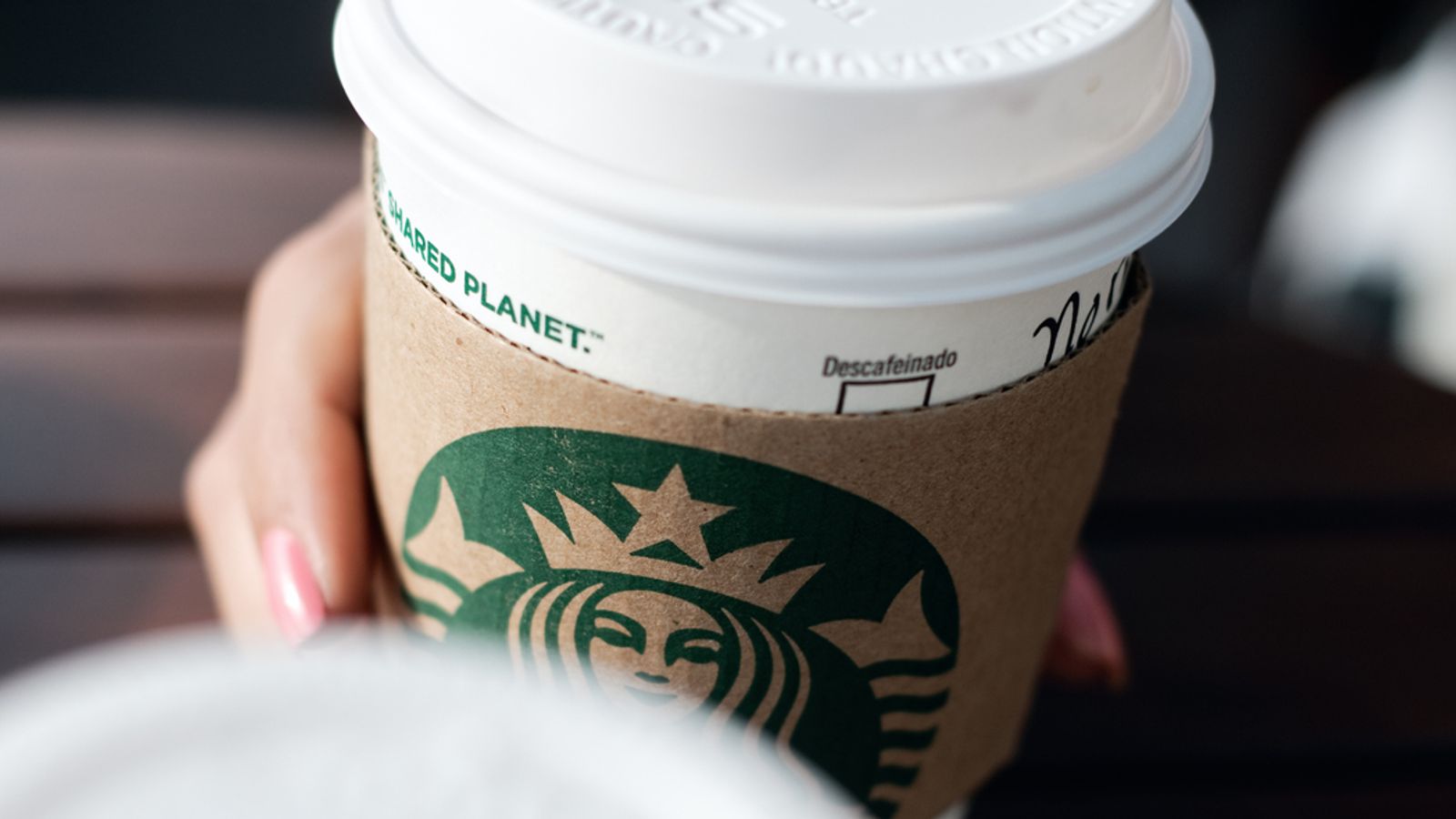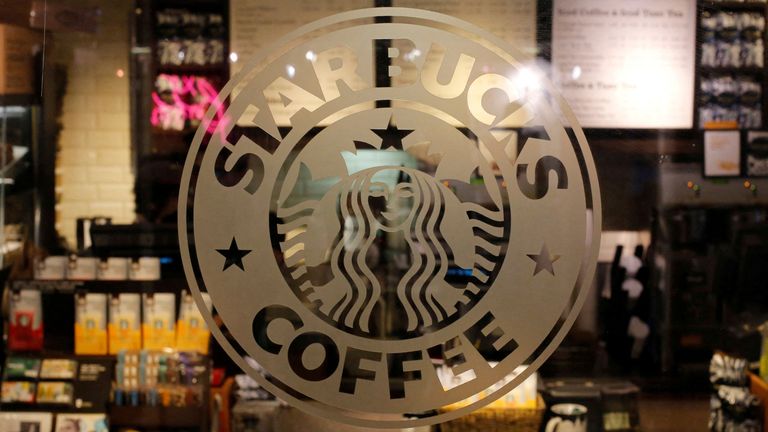Starbucks is being sued in the US for alleged false advertising over how ethically sourced its products are.
The lawsuit centres on accusations it is getting coffee and tea from farms that have human rights and labour abuses, when the company says it is committed to “100% ethical sourcing”.
The legal action, which has been filed in court in Washington DC, is being brought on behalf of US consumers by the National Consumers League which cites reports about alleged abuses on farms in Guatemala, Kenya and Brazil.
The advocacy group alleges the world’s biggest coffee shop chain has continued to buy from these suppliers despite the alleged violations.
Sally Greenberg, the league’s chief executive, said: “On every bag of coffee and box of K-cups that Starbucks sells, Starbucks is heralding its commitment to 100% ethical sourcing.
“But it’s pretty clear that there are significant human rights and labour abuses across Starbucks’ supply chain.”
She said the lawsuit tries to prevent Starbucks from making claims in its advertising that it is “committed to 100% ethical coffee sourcing”, unless the company raises the standard of labour practices in its supply chain.
In recent years, officials in Brazil have clamped down on several reported Starbucks suppliers over alleged abusive and unsafe practices.
These accusations include farms taking the cost of harvesting equipment out of workers’ wages, not providing clean drinking water, personal protective equipment and toilets, and employing people who are underage, according to news organisation Reporter Brasil.
It said that in 2022, 17 workers, including three people under 18, were rescued by inspectors from “modern slavery” at a coffee farm managed by a man whose coffee roaster company got Starbucks’ seal of certification a month earlier.
Read more:
Starbucks launches olive oil coffee
Starbucks vanilla Frappuccino drinks recalled in US
Starbucks bosses sued by think tank over diversity push
Like many companies, Starbucks uses third-party certification programmes to ensure the integrity of its supply chains for tea and cocoa.
The company launched its own sourcing standards, called Coffee and Farmer Equity (C.A.F.E.) Practices, in 2004 to oversee its coffee sourcing in more than 30 countries.
The verification programme holds Starbucks coffee suppliers to more than 200 environmental, labour and quality standards. Farms which fail to meet those can be barred from supplying the company until corrective action is confirmed.
But experts say there have been questions over how effective such programmes are, reported NBC News, Sky’s US partner network.
In response to the Reporter Brasil stories and reported labour abuses in Kenya and Guatemala cited in the lawsuit, Starbucks issued statements that the company was “deeply concerned,” and it would “thoroughly investigate” claims of labour violations, “take immediate action” to suspend purchases or “ensure corrective action” occurred.
A spokesperson for Starbucks did not immediately respond to a request from NBC News, for comment on its sourcing relationships with the farms and companies mentioned in the lawsuit.
But in an earlier statement to NBC News, Starbucks said: “We take allegations like these extremely seriously and are actively engaged with farms to ensure they adhere to our standards.
“Each supply chain is required to undergo reverification regularly and we remain committed to working with our business partners to meet the expectations detailed in our Global Human Rights Statement.”

